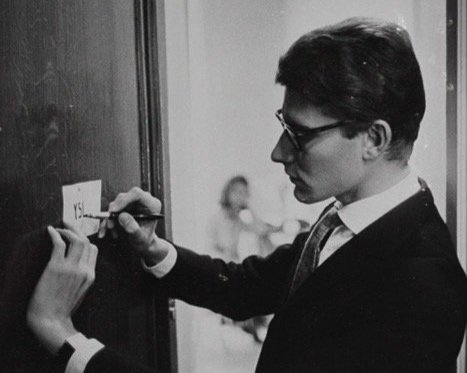Emerging Trends in Luxury: The AI Atelier
Luxury has always been defined by its paradoxes—timeless yet modern, intimate yet expansive, personal yet universal. Now, another layer enters the equation: artificial intelligence.
Quietly and deliberately, luxury brands are weaving artificial intelligence into their fabric—not to automate extravagance, but to elevate it. By infusing technology with taste, they allow innovation to serve the artistry, heritage, and emotional resonance that define true luxury. But as luxury embraces the intelligence of algorithms, one must wonder—can the emotional richness and artisanal intimacy that define it be preserved in a world increasingly shaped by code?
Personal Touch Perfected
Today’s luxury isn’t one-size-fits-all—it’s precision tailored. With AI, brands are deepening personalization in ways that were once unimaginable.
At the forefront, Estée Lauder is using AI to develop skincare informed by genetics and environment, while LVMH’s AI Factory leverages machine learning across its maisons to create smarter customer experiences, from Louis Vuitton to Fendi.
AR-powered try-ons, chatbot stylists, and intelligent recommendation engines are now standard in luxury e-commerce—yet they feel anything but mechanical. At their best, these technologies feel like intuition rendered digital, offering just the right suggestion at just the right moment.
Intuition to Innovation
Far from replacing the artistic hand, AI is becoming a creative confidante. It deciphers trends, interprets data, and enhances decision-making—giving designers more freedom to create with foresight and precision.
Chanel has reportedly used AI to analyze historical collection performance and digital sentiment, helping guide the evolution of its product storytelling. Louis Vuitton, meanwhile, has dabbled in immersive digital experiences and AI-generated campaign visuals that speak to a new era of luxury—fluid, intelligent, and boldly modern.
According to Kearney, partnerships between luxury houses and AI startups are accelerating, offering new perspectives on innovation without compromising heritage.
Invisible but Essential
Luxury isn’t just about what’s seen—it’s about what’s unseen. That’s why some of the most meaningful AI advancements are happening behind the scenes. The elegance of these systems lies in their subtlety—elevating operational efficiency without ever compromising the soul of the product.
Burberry has integrated AI into its inventory management systems, enabling more sustainable production cycles and better alignment with real-time demand. Many AI tools are helping brands reduce excess and make data-informed buying decisions, directly addressing the industry’s growing sustainability mandate.
A New Frontier
Marketing in the AI age remains aspirational—but it’s becoming more adaptive. Generative AI is helping brands refine their storytelling, while digital influencers and avatars are emerging as the newest muses.
As Vogue Business notes, virtual models may soon become a staple in high fashion campaigns, opening the door for global personalization and visual experimentation. It’s not about replacing reality, but reimagining it—while staying rooted in aesthetic truth.
Brands are also leveraging AI for A/B testing creative assets, adjusting campaign strategies in real time, and developing deeper understandings of cultural and emotional resonance. The result? Content that doesn’t just look beautiful, but performs beautifully too.
The Elegant Edge
Still, even as AI unlocks new potential, luxury must hold itself to higher standards. Questions of data privacy, consent, and psychological impact linger.
In beauty, for instance, brands face growing pressure to counteract AI-generated imagery that may reinforce unattainable ideals. As Vogue Business explores, the future of AI marketing must be tempered with transparency, empathy, and a deep respect for human dignity.
As always, discretion is part of the luxury promise—especially when it comes to technology.
The Road Ahead
As luxury enters this new era of intelligent refinement, a quiet caution lingers beneath the innovation. While AI offers unparalleled possibilities, it also introduces risks—subtle shifts in creative authorship, dependency on algorithms, and the potential erosion of human nuance in favor of digital efficiency.
The allure of personalization must be weighed against concerns of data privacy; the marvel of automation must not eclipse the soul of craftsmanship. In a world increasingly shaped by machines, the enduring challenge for luxury is not just to adopt AI—but to wield it with discernment, restraint, and a reverence for the irreplaceable touch of the human hand.
For Professionals
For brand leaders, creatives, and marketers, AI is no longer a trend—it’s a toolkit. Professionals should explore how machine learning can complement brand storytelling, assist with strategic decisions, and create more meaningful customer journeys. The brands winning today are not just the most traditional or the most tech-savvy, but those who know how to harmonize both.
For Consumers
For the modern luxury consumer, AI will increasingly feel like magic. Expect more intuitive service, more tailored recommendations, and more immersive digital touchpoints. Still, be discerning: seek out brands that use technology ethically to refine the luxury experience.

























